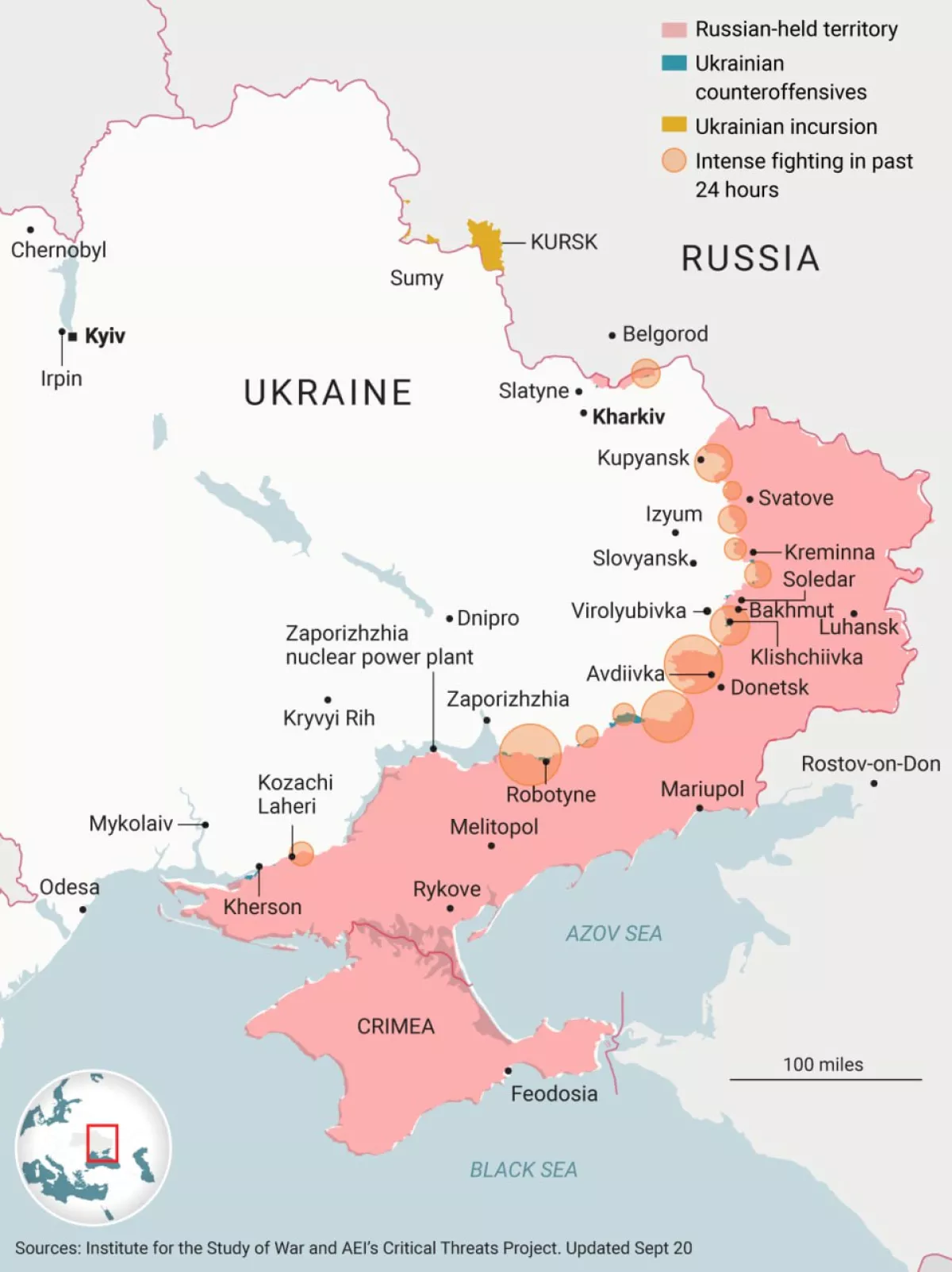Ukraine has a victory plan — but what does victory mean? Opinion by Mark Galeotti
Columnist Mark Galeotti has published an article in The Sunday Times, reflecting on President Volodymyr Zelenskyy's upcoming peace proposal, which he is set to present at the UN General Assembly.
As Zelenskyy prepares to unveil his latest initiative, uncertainty lingers over whether his allies believe that a decisive victory over Russia is achievable. Galeotti highlights that the Ukrainian president is travelling to the U.S. to address the UN General Assembly on September 25 and meet with President Biden, where he will outline a plan aimed at resolving the conflict with Russia. This development compels Western nations to confront a question they've largely avoided: What does “victory” actually mean?
Zelensky's proposed plan reportedly encompasses various aspects, including Ukraine's security, relations with the EU and NATO, ongoing military and economic assistance, and post-war reconstruction. While American officials have indicated they are familiar with the general outlines of the plan and consider it practical, the specifics remain unclear. It's uncertain whether it serves as a broad vision for ending the conflict or a detailed roadmap for achieving that end.
In November 2022, Zelenskyy presented a ten-point peace plan that called for holding the Russian leadership accountable through a war crimes tribunal — an expectation that Moscow is unlikely to meet. The forthcoming plan appears to have a similar secondary aim. As a German diplomat remarked, “I don't know if it will bring victory over the Russians, but it is probably designed, like everything else, to keep us in line.”

Zelenskyy has firmly rejected any ceasefire or attempts to “freeze” the conflict, stating such actions would merely delay further Russian aggression. His key adviser, Mikhail Podolyak, has similarly ruled out ceding any territory to Russia.
Western support for Ukraine, despite its lofty rhetoric, remains tentative and constrained. This context informs Zelenskyy's decision to unveil his plan in this manner. The U.S. government has been hesitant to grant permission for Ukraine to deploy Storm Shadow missiles, provided by the UK and France, against strategic targets deep inside Russia. While London remains optimistic that approval may come soon after Zelenskyy’s visit, Kyiv interprets this hesitation as indicative of the conditional nature of Western support.
Ukraine must continually strive to persuade its allies not only to maintain and expand assistance but also to avoid pressuring Kyiv into unwelcome concessions. Compounding these challenges is the potential election of Donald Trump, who has claimed he could end the military conflict “in 24 hours,” potentially through a ceasefire imposed on both sides.
In Europe, there exists a growing “Ukraine fatigue.” While countries like Poland and the UK remain staunch supporters, others express a readiness to explore ending the conflict, even if it means accepting an “ugly peace.” This shift arises partly from the West’s failure to fully consider the implications of what victory entails. Is it merely about expelling Russian forces, or is it essential to deliver a catastrophic blow to Russia's military capabilities to prevent future threats?
Rather than addressing these complex questions, Western leaders often hide behind the mantra that it is up to Ukraine to determine its path forward. This reluctance to confront internal disagreements regarding the conflict's resolution has led to an inability to reach a consensus on several critical issues.








